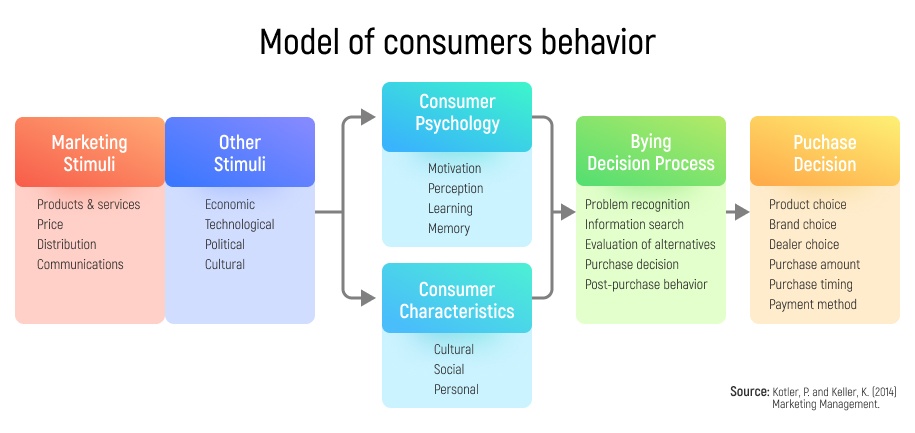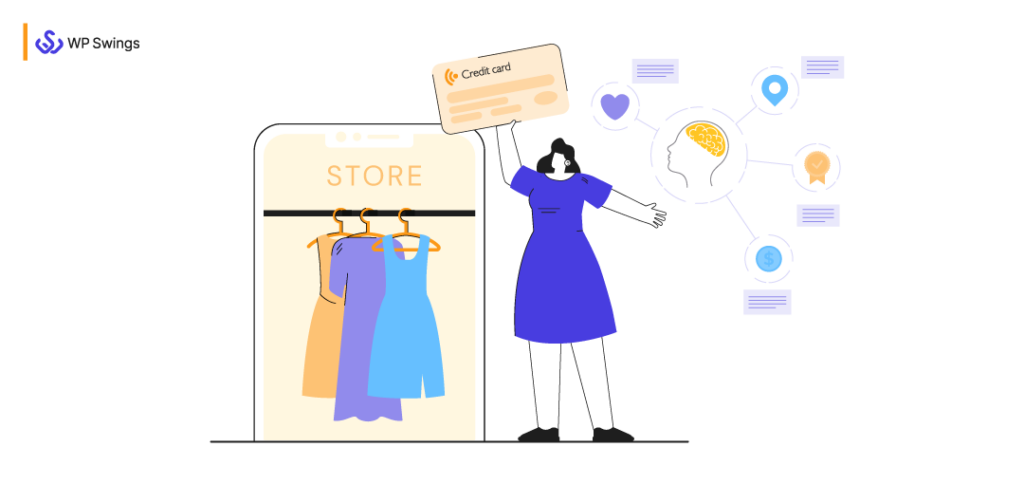
One essential truth in the ever-changing world of marketing holds true: the success of your campaigns depends on your capacity to understand your audience.
For businesses hoping to succeed in today’s competitive industry, understanding the psychology of consumer behavior is not just a nice-to-have, but a requirement!
Consumer psychology: Why Is It Important?
Consumer psychology examines the complex web of feelings, motives, and thinking processes that influence people’s decision-making. Businesses can modify their marketing strategy to resonate more strongly with their target audience by acquiring insight into these psychological factors. Here are some persuasive arguments for why it’s important to comprehend consumer psychology:
Personalization Encourages Engagement
In contemporary marketing, personalization is the name of the game. You may make your messaging and offerings more effective by speaking to your audience’s specific wants, desires, and pain areas. Higher engagement rates, more client loyalty, and eventually higher ROI are the results of this strategy.
Consider the following use case: Amazon. To deliver individualized product recommendations, their recommendation engine examines past purchases, browsing habits, and even demographic information. This degree of customization has been a major factor in their success.
Establishing Trust by Showing Empathy
Marketing can benefit greatly from using empathy. You gain your consumers’ trust when you show that you comprehend their problems and have answers to provide. Trust in turn encourages long-lasting client connections.
Use Case: Dove’s “Real Beauty” campaign is a prime illustration of marketing that is motivated by empathy. Dove built itself as a brand that has a profound emotional understanding of its consumers by highlighting genuine women and addressing their insecurities.

Action Is Driven by Emotion
In the decision-making process of consumers, emotions are crucial. Whether it’s completing a purchase, sharing content, or signing up for a newsletter, emotional triggers can motivate action.
Use Case: By writing people’s names on the bottles, Coca-Cola’s “Share a Coke” campaign sparked sentiments of reminiscence and intimate connection. Increased revenues and a large amount of user-generated content were the results of this emotional connection.
Steps to Understanding Your Audience
We’ve established the importance of consumer psychology, so let’s move on to some useful strategies for better understanding your audience.
Carry Out Thorough Audience Research
Start by compiling information on the characteristics, behaviors, and data of your audience. Your marketing strategy will be built on the basis of this data.
For instance, knowing that millennials who are health-conscious and like at-home exercises are part of your audience will help you choose your content and advertising.

Create Customer Personas
Create thorough consumer personas to represent the various audience segments. These personas ought to contain details about their objectives, problems, hobbies, and preferred methods of communication.
As an illustration, personas for a software company focusing on small enterprises may be “Savvy Startup Owner Sarah” and “Tech-Averse Tony the Tailor.”
Conduct Polls And Get Comments
Engage your audience directly by conducting polls, collecting feedback, and monitoring social media. To better understand your customers’ experiences, preferences, and pain spots, encourage honest feedback.
For instance, a restaurant might survey patrons to find out which menu items they prefer, enabling menu optimization.

Examine Web Analytics And Social Media Analytics
Utilize social media insights and Google Analytics to monitor user activity on your website and social media profiles. This information might show you which of your audience’s favorite messages and campaigns.
An e-commerce store might observe that product demonstration films get more views, which prompts them to produce more video content.
Keep Up with Consumer Trends
Because consumer behavior is fluid, it’s critical to keep up with the most recent developments in your sector. Keep an eye on competition strategy, market research, and developing technology.
Consumer psychology understanding is a process, not a finish line. Empathizing with your audience and learning new things are ongoing processes. You may then design marketing initiatives that not only increase revenue but also foster enduring relationships with your clients. Keep in mind that your marketing approach should always place the customer at the forefront.
Are you looking for the next chapter in your marketing strategy? contact someone from our team for a free consultation and get started. 🚀✨




